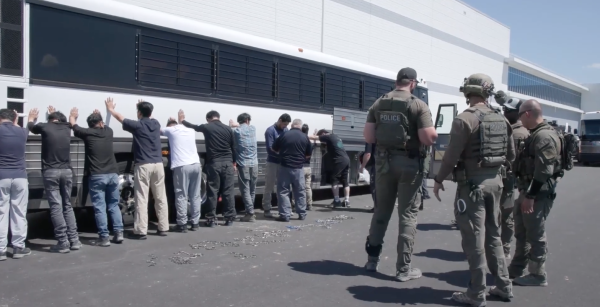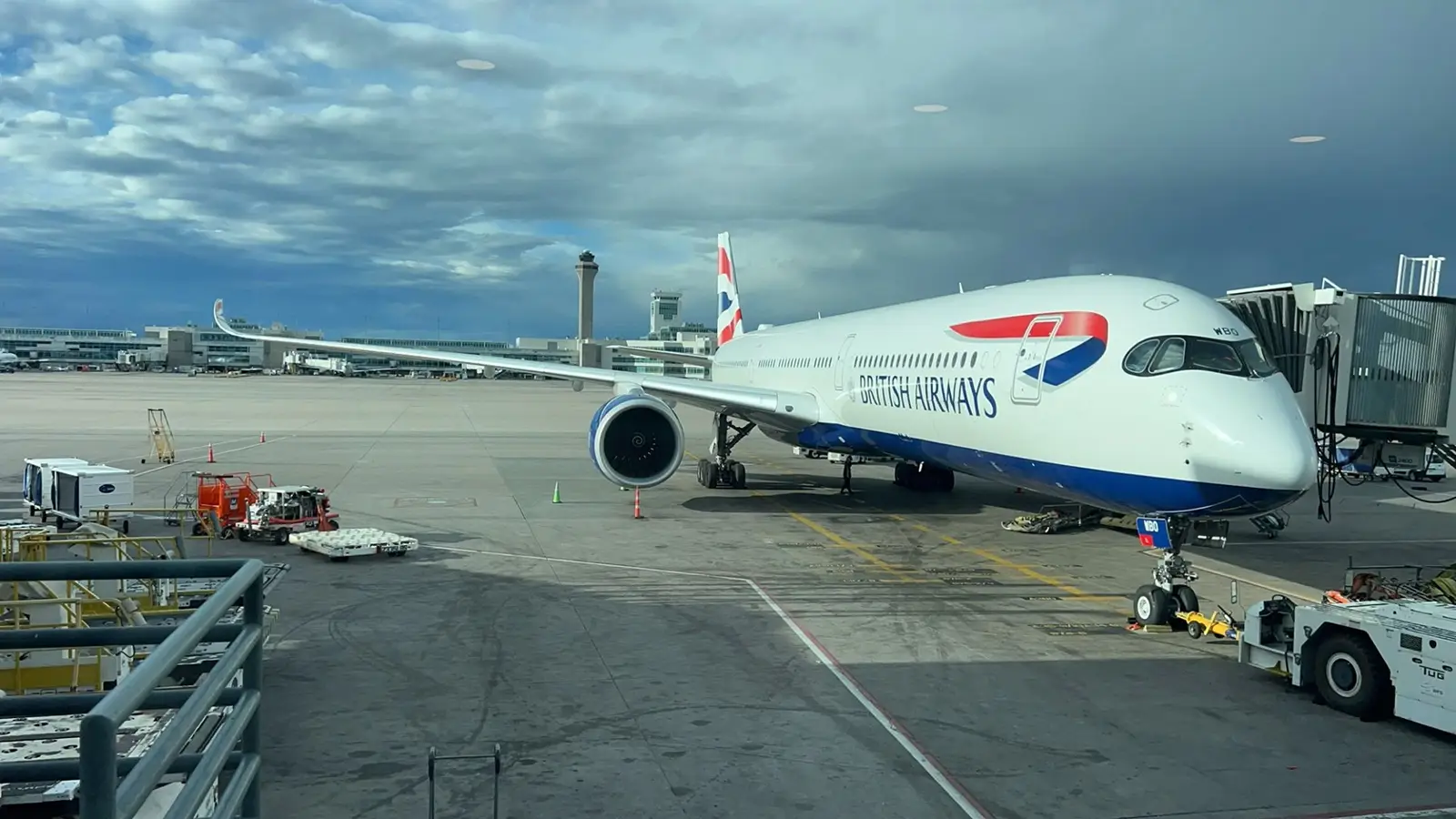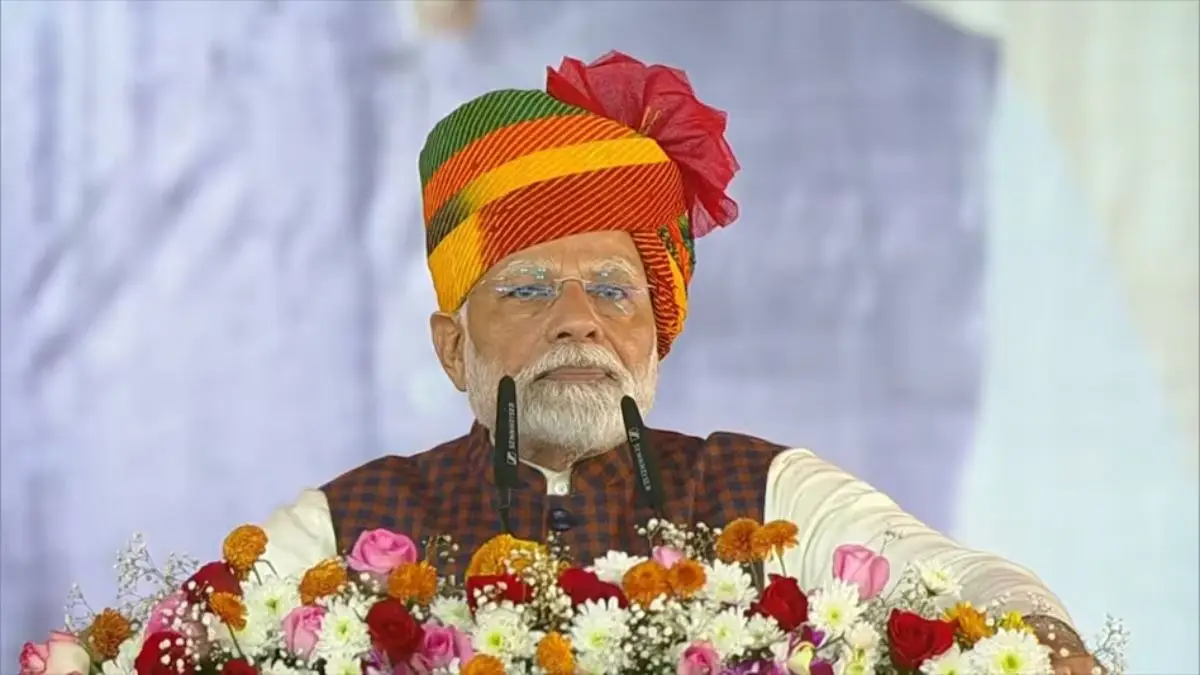By Eunwoo Lee
Copyright thediplomat

In early September, the U.S. Immigration and Customs Enforcement (ICE) raided the Hyundai-LG Energy Solution’s battery factory in Ellabell, Georgia. Some 300 South Koreans were on site when choppers and drones swooped down, and armored vehicles and ICE agents barged in. Most of the South Korean workers were automation programmers, mechanical engineers, and other information technology specialists. Construction of the electric vehicle battery factory had been 98 percent completed. With brick-and-mortar construction already done, this sophisticated workforce was dispatched to fine-tune the machinery and teach local workers the ropes. Some Koreans weren’t even there to work but on a field trip. Yet ICE herded all of them together at gunpoint, shackling their ankles and waists, and forced them on a perp walk onto transportation vehicles. ICE alleged that the Koreans had overstayed their visas or held permits that excluded performing manual labor. This seems hardly the case, however. Most of them arrived in Georgia with an ESTA (a visa waiver program meant for traveling or short-term business trips) or B-1 (a business visa for foreign nationals to install and maintain imported machinery and educate Americans how to operate it). Obviously, they were not manual laborers. Hyundai, LG, and their subcontractors insist that they followed the U.S. Department of State’s guidelines and communicated with the U.S. Embassy in South Korea to check their adherence to these visas’ requirements. ICE’s Georgia raid was Homeland Security’s largest single worksite operation ever conducted in its history. But it also may have been the agency’s largest mistake. Georgia and the city of Savannah need to uplift rural counties near the coast, and local officials saw Hyundai and LG as the answer. Brian Kemp, Georgia’s governor, and his economic development team paid a few visits to Seoul to entice investment to their state. In 2022, Georgia managed to secure a manufacturing deal with Hyundai. Hyundai’s investment to Georgia has since ballooned to $12.6 billion. Hyundai’s Metaplant America, as its sprawling Ellabell complex is known, is the biggest economic development project in Georgia’s history. The Hyundai-LG Energy Solution battery cell plant raided by ICE, worth $4.3 billion on its own, was slated to annually produce enough battery cells to power approximately 300,000 electric vehicles. Hyundai’s presence is bringing more economic benefit to Georgia than the Atlanta Olympics did, according to Trip Tollison, the head of the Savannah Economic Development Authority (SEDA). Befitting such an investment bonanza, Georgia has made extensive efforts to spruce up the counties surrounding the Hyundai’s production site. Its state and local governments have poured more than $350 million into road improvement. They have also enlarged the area’s ports to facilitate shipment in and out of manufacturing parts and cars. To then have ICE trampling on Georgia’s crown jewel must have thrown Kemp into a tizzy. He’s a Republican, and balked at denouncing ICE in public. Yet Georgia scrambled into crisis management mode – South Korea, after all, is the state’s third-largest international trading partner. Georgia’s subsequent actions and remarks conveyed Kemp’s embarrassment and apology. The Georgia Department of Economic Development and SEDA met with Hyundai Motor executives to discuss the possibility of ushering the deported workers back. “You have sophisticated, talented South Koreans here installing battery equipment. The frustration … is that there’s no other entity in the world that has this proprietary technology that has to be installed by certain individuals. We are relying on South Korea,” Tollison from SEDA told Savannah Morning News. Kemp himself is coming to South Korea again, eager to meet with Hyundai executives for damage control. In the meantime, the Ellabell battery plant is bleeding $2.3 million per day from having the construction forcibly stalled. The sense of embarrassment and regret isn’t confined to Georgia. Visiting Seoul on September 14, Christopher Landau, U.S. deputy secretary of state, expressed his “deep regrets” over the Georgia detention fiasco. He also ensured that the deported workers wouldn’t face any disadvantages upon returning to the United States and that there would be no further similar incidents in the future. Even U.S. President Donald Trump himself chipped in. With the Georgia raid and its repercussions on foreign personnel temporarily working in the U.S. in mind, Trump posted that “I don’t want to frighten off or disincentivize investment into America by outside countries or companies. We welcome them, we welcome their employees, and we are willing to proudly say we will learn from them …” Contrary to Trump’s signature bluster and hyperbolic applause of anything that his administration executes, this is as close to an apology and conciliation as Trump will ever be willing to concede. The Congressional Research Service pointed out that the ICE’s operations against Hyundai’s Georgia plant “have raised concerns in South Korea about the bilateral relationship, as well as questions over whether U.S. immigration policy may conflict with the U.S. objective for increasing U.S. manufacturing jobs through foreign investment.” Indeed, the Georgia raid instilled fears among South Korean companies with manufacturing projects in the pipeline in the United States. Samsung Electronics has invested about $37 billion for its semiconductor foundry in Texas. SK Hynix’s Indiana plant, worth $3.8 billion, is expected to mass-produce high-bandwidth memory chips for AI by 2028. Weeks before the Georgia raid, Hyundai also pledged to hike its U.S. investment to a total of $26 billion. Besides these megaprojects, there are other major South Korean deals scattered around the U.S. Since the raid, however, South Korean companies have packed their workers back home. Specialized workers have postponed or canceled their U.S. trips. Having seen their fellow South Koreans being rounded up by armed agents, shackled, and forced to sustain themselves on pieces of bread and canned beans for days, they have developed a collective phobia of U.S. business trips. (Having realized his administration’s mistake, Trump even offered to allow the detained South Korean workers to stay put and continue their work, but only one opted to remain.) Completion dates for constructing South Korean plants in the United States are being inevitably delayed, which translates to economic loss not only for these companies but also for local communities in the states. This is a critical dampening factor in the companies’ future choice of investment. Shortly after the Georgia raid, South Korean President Lee Jae-myung noted that “our businesses that are investing in the United States will no doubt be very hesitant.” As Seoul and Washington are hashing out the details of South Korea’s verbal commitment to invest some $350 billion into America, the Georgia detention trauma looms large. The Hyundai plant incident also alarmed other foreign companies as well. In the immediate aftermath, multinational companies flooded U.S. legal firms with requests for legal advice as to their employees’ visa status, most of whom own the same categories of visas as the deported South Korean workers. Even non-Korean companies were disturbed to see South Korean employees being treated “like criminals,” and halted some of their planned U.S. trips in response. It’s a common industry practice for foreign companies to bring in specialized workers on short-term business visitor visas, like the ESTA and B-1 or B-2. This is particularly the case in sectors such as battery manufacturing, shipbuilding, and semiconductors, where U.S. workers lack the technical expertise. Foreign specialized workers have to come over in droves for equipment installment and training. Given the short construction time and high visa application hurdles, securing other visas is impossible. L-1 visas are for nonimmigrant intracompany transferees, allowing managerial employees at multinational companies with branches in the U.S. to move to the United States. Most specialized workers with requisite technical proficiency, however, are subcontractors (not hired directly by the conglomerates) without recourse to this visa category. There are H-1B visas for specialty occupations as well, but this visa category has a low and arbitrary annual cap (only 85,000 issued each year for now). It’s also exorbitant to apply for and highly in demand. Plus, the lottery system for allocating H-1Bs makes it impossible for companies to quickly obtain one for each of their technicians required to set up highly complex facilities on short notice. Previous U.S. administrations, therefore, had allowed multinational companies to complete their investment projects by hosting high-skilled foreign nationals under visitors’ visas. As mentioned above, ESTA allows for some scope of business activities, while B-1 specifically allows for equipment installment and training. Yet ICE under the Trump administration has “taken a more restrictive view of what’s allowed as a business visitor than what’s in the regulations,” as one U.S. law firm noted. ICE maintained that individuals found at Hyundai’s Georgia plant were fraudulently using visitors’ visas.” ICE gets to make the final call. Intricate, endless technicalities and legal gray areas in the U.S. immigration law leave ample room for haphazard legal interpretation and abuse of immigration operations. Luckily for South Korean conglomerates – and for the U.S. economy – since the Georgia raid, U.S. officials have shown not only an apologetic stance but also a willingness to accommodate South Korea’s visa requirements to pull off their glitzy investment deals. U.S. Deputy Secretary of State Landau proposed to hold talks on issuing proper visas for South Korean workers, citing a need for Washington’s institutional support for South Korean corporations. U.S. Commerce Secretary Howard Lutnick also said Trump will address the tensions caused by the ICE’s Georgia raid. The most likely outcome would be the passage of the Partner with Korea Act, which was first proposed in 2013 but has been stalled ever since. The bill intends to create an entirely new U.S. visa category, E-4, for nonimmigrant specialized South Korean workers to help build U.S. manufacturing capacity. Experts believe that, given the increasing size of South Korea’s investment in the states and the Seoul-Washington commitment to “Make America’s Shipbuilding Great Again (MASGA),” there should be at least 20,000 E-4s issued annually. While both countries hammer out satisfactory visa arrangements, South Koreans’ perception of the Trump administration and working in the United States is unlikely to pick back up anytime soon, if ever. ICE’s rough handling of South Korean workers scarred the national psyche. The Foreign Ministry in Seoul noted that the general public in South Korea “felt deeply shocked by the crackdown.” The Georgia raid engendered rare political unity in South Korea, with politicians across partisan lines uniformly deploring the images and footage of their people carted off in chains. South Korean conservatives today are characterized by their affinity for Trump, their belief in election fraud conspiracy theories, and anti-immigration sentiments. Yet, almost 40 percent of conservatives said they were “deeply disappointed” by the Trump administration. Most South Koreans would have much stronger words than that. Most crucially, South Korean workers are understandably reluctant to set foot in the United States. As numerous interviews and anecdotes have revealed, their trust has been shattered. The sense of humiliation will stick. Washington may flash whatever enticing visas, but some wounds just never heal.



